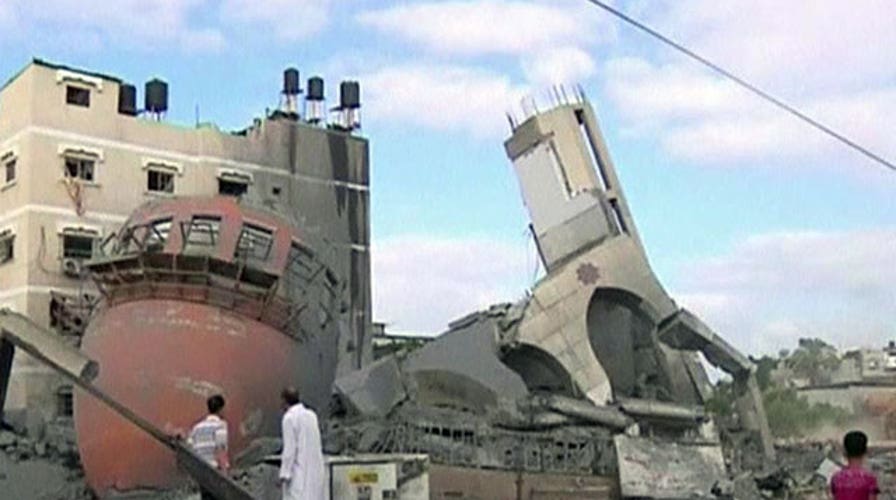CAIRO – A five-day extension of a Gaza truce appeared to be holding despite a rocky start on Thursday, fanning cautious optimism of progress in the Israel-Hamas negotiations underway in Cairo.
It's the longest cease-fire yet since the war broke out last month in the Gaza Strip. Palestinian and U.N. officials claims that the fighting has so far killed more than 1,900 Palestinians, though it is not clear how many of those are civilians. Israel has lost 67 people, all but three of them soldiers.
Violence briefly spiked as the extension of a previous, 72-hour truce was announced shortly before midnight on Wednesday. The extension is to last until midnight on Monday.
Israel's military said eight Hamas rockets were launched at Israel but that the firing stopped in the early hours of Thursday morning. Israel retaliated with airstrikes on rockets and rocket-launching sites in Gaza, the military said.
Gaza police said it recorded 17 Israeli strikes but that no casualties were reported.
Palestinian negotiators in Cairo expressed optimism that a deal to create a sustainable roadmap for the war-torn territory could soon be achieved.
Hamas is seeking an end to a crippling blockade imposed by Israel and Egypt in 2007. The blockade has greatly limited the movement of Palestinians in and out of the territory of 1.8 million people. It has also restricted the flow of goods into Gaza and blocked virtually all exports.
Israel says the closure is necessary to prevent arms smuggling, and officials are reluctant to make any concessions that would allow Hamas to declare victory.
Israel wants Hamas to disarm, or at least be prevented from re-arming. Hamas has recovered from previous rounds of violence with Israel, including a major three-week ground operation in January 2009 and another weeklong air offensive in 2012. It now controls an arsenal of several thousands of rockets, some with long ranges and relatively heavy payloads.
In Cairo, Hamas official Izzat al-Rishiq official said agreement on some points in a long-term deal had already been reached, but that additional time was needed to hammer out a comprehensive agreement.
"We are holding onto our demands to open the seaport and the airport in Gaza so we can end the blockade once and for all," he said, referring to what has been a key Hamas demand in the talks for two links with the outside world.
Al-Rishiq said Hamas negotiators were leaving Cairo on Thursday for consultations in the Qatari capital of Doha, the first time they have been permitted to fly directly from that airport since a military-backed government took over in Egypt last year, replacing an Islamist president whose Muslim Brotherhood group was closely allied with Hamas.
That could be a sign that Egypt's new anti-Hamas leadership is satisfied with the degree of flexibility that Hamas and other Palestinian negotiators are demonstrating in the current talks with Israel.
Egypt has positioned itself as the key mediator in the talks, but its tough anti-Hamas policies could limit its effectiveness. The tiny Gulf Arab nation of Qatar is seen as a conduit for Hamas demands. It hosts several senior Hamas leaders and has staunchly opposed the Egypt-Israel blockade of the Palestinian coastal strip.
Israeli government spokesman Mark Regev would not comment on the progress of Cairo talks.

